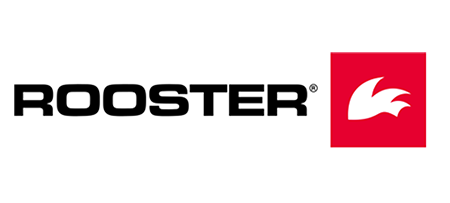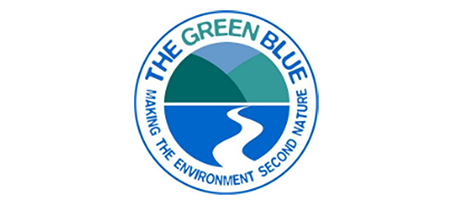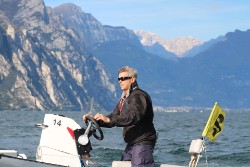
Welcome to the International Class Association website for the RS Aero. Here you will find all there is to know about the RS Aero including the latest news, how to register your boat, and links to relevant documents.
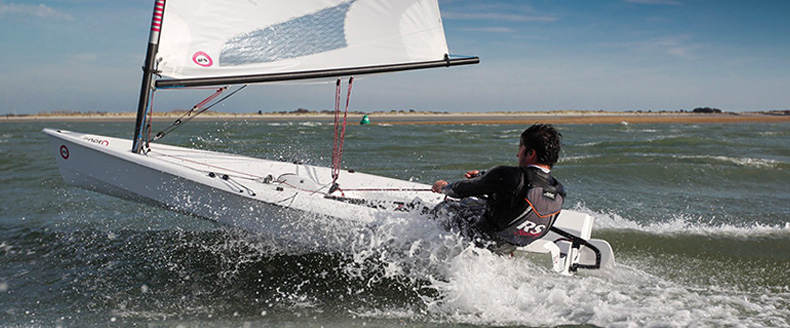
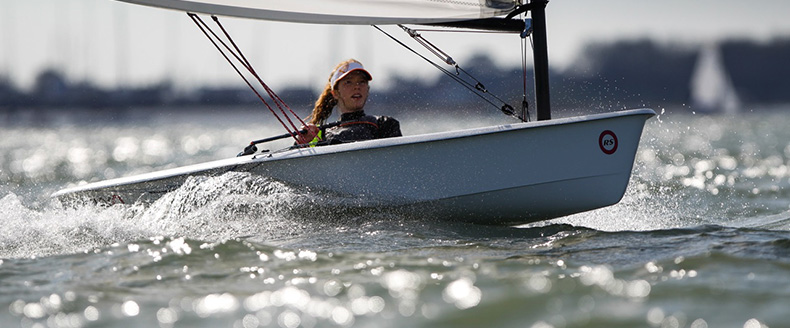
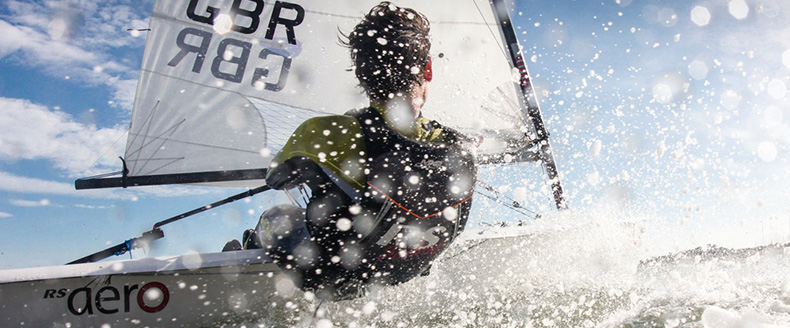
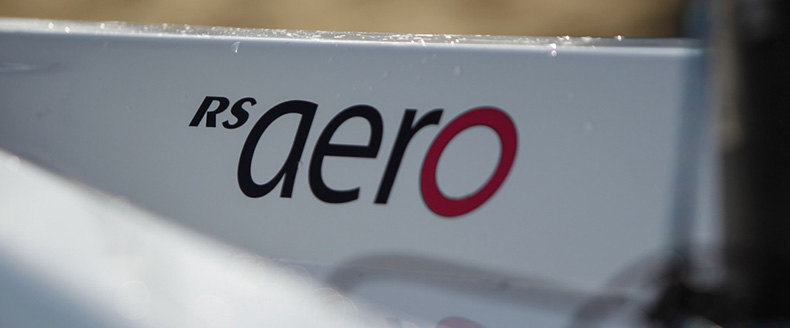
| Home >> Top Tips >> TopTip2020 #70 - Stay Alert, Control The Risks, Save RNLI Callouts - Ken Fowler, GBR |
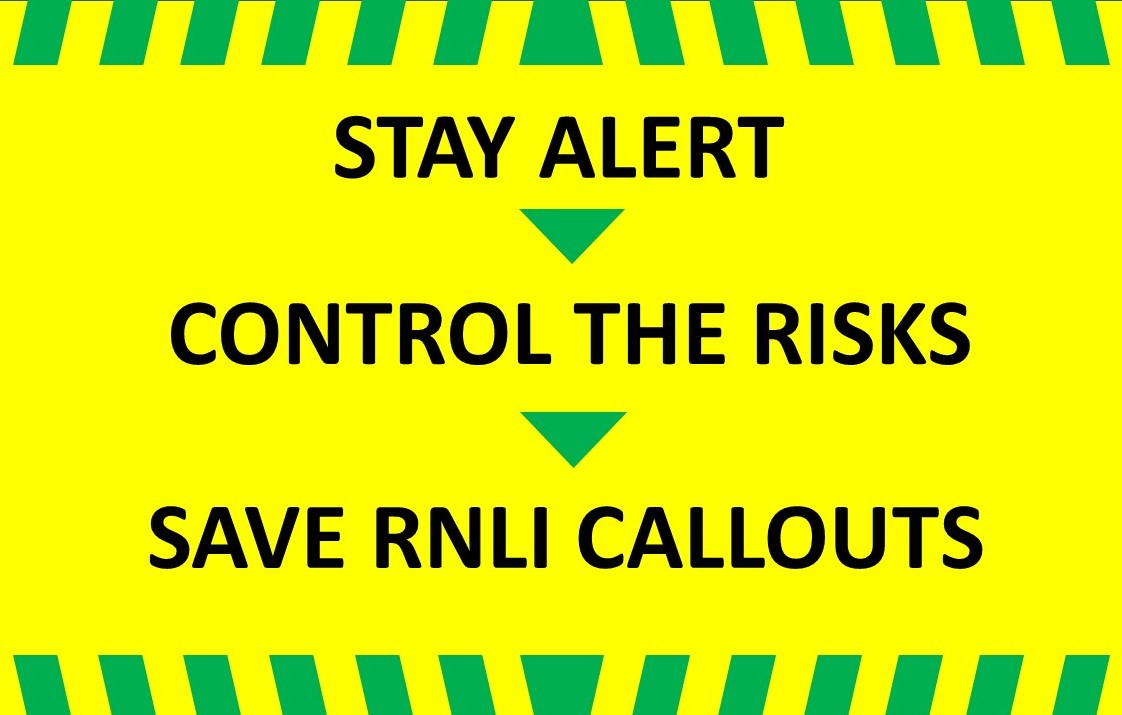 TopTip2020 #70
TopTip2020 #70 Stay Alert > Control The Risks > Save RNLI Callouts
by Ken Fowler, GBR
Ken Fowler has clocked up more RS Aero Miles and given more thought to safety than most RS Aero sailors having sailed long unsupported passages in his RS Aero from Lands End to the north coast of Scotland in 2017 and more recently on his Yodare Island's Adventure Challenge. Ken shares some of that insight to assist our safety planning;
To be honest I was a bit surprised (and honoured!) to be asked by “Uncle Pete” to do a TopTip. The guidance for TopTips said “Ways To Go Faster When We get Back Out On The Water”, but as a bit of an average RS Aero sailor who doesn’t do races very often I’m not sure that I have much to pass on with regards to speed to all you experienced racers out there. However, desperately looking for something that I might be able to contribute I conveniently ignored the first part of the sentence and focussed on the “Back Out On The Water” bit.
Now one thing I have done is spend long days sailing an RS Aero in some pretty inhospitable places that bring with them many and varied associated risks. So, as we all get back on the water in our much loved RS Aeros I thought I’d share a few of my experiences gained – just so you can hopefully avoid being that RS Aero that gets towed in by the RNLI – coronavirus or no coronavirus. Lets look at the current UK Government catchy advice slogan; “Stay Alert > Control The Risks > Save RNLI Callouts” (bit of poetic licence there!).
You can also “Stay Alert” for others around you. If there is a nearby capsize go and check they are OK. If someone has landed nearby unexpectedly see if they need assistance. By staying alert for others, you might just be saving their lives – something far more important than winning any race.
Control the Risks - is all about thinking about the risks before you even go out on the water. Think about your equipment – check all the knots, fittings, anything looking chafed, got a knife and whistle just in case? Is your clothing appropriate for the conditions out there? Probably better to be a bit too warm than risk getting cold. Have you got water and food on board if appropriate? What are the tides doing now and what times do the tides change? Check the wind from several different sites – take the an average and always rig for the worst possible conditions. Its far safer to be going a little more slowly rather being over powered and at risk of either Wring yourself out or of increasing the capsize risk. If the area you are sailing in is unfamiliar do your research, ask locals, pay attention to landmarks as you sail out, identify potential emergency landing sites and the conditions that might prevent you from using such places. Every bit of research and planning you do before setting out on the water greatly reduces the risks that you might experience out there. Doing something from the comfort of your armchair is a lot easier than trying to come up with a plan in the midst of a Force 6 as you cross unexpected overfalls – believe me I know!
Whilst the majority of risks can be managed by actions taken before you launch, it doesn’t stop when you are out there on the water, it just makes them a little more “challenging”. If the sailing conditions have started to worsen then moderate the way you are sailing. Avoid potentially dangerous gybes, de-power your rig, start planning your safe route back to your launch site or perhaps to the nearest appropriate landing site. By acting in a planned way rather than a reactive way you are controlling the situation and keeping yourself safe. Keep thinking about not only what is happening, but also what could happen and importantly, if it did happen, what would you do to manage that situation? The process should be in the forefront of your mind at all times, a part of your normal sailing routine, virus or no virus.
Save RNLI Callouts - If we, as RS Aero sailors, follow the above advice then we are achieving the goal of “Save RNLI Callouts”. Whether we are in a “normal world”, or a “CV19 world”, as sailors we ALL need to ensure that we take full responsibility for our own safety out on the water and think through all the consequences of our planned sail. By doing so we minimise the need to endanger these volunteers who willingly put their lives on the line to save us. By ensuring you are not calling the RNLI releases them to attend other calls that could be life threatening.
Of course there may be times when you will have to call them, and when you need them you must do that, (I know as I’ve got a few RNLI tales!), but if you can look back and say there was nothing you could have foreseen, or done, that would have avoided the situation, then you are following acting responsibly, which you should continue to do long after this pandemic has hopefully left our world.
Stay Safe! Ken '
*NOTE: If you are not UK based then just replace RNLI with whoever are your excellent safety services. Wherever in the world, they all do the same amazing job.
Check out Ken Fowler's adventures in aid of his Cancer Charities here;
Stay Alert > > Control The Risks > > Save RNLI Callouts

Reply
18/06/2020 00:09:00
Peter Barton
Posts: 4676


